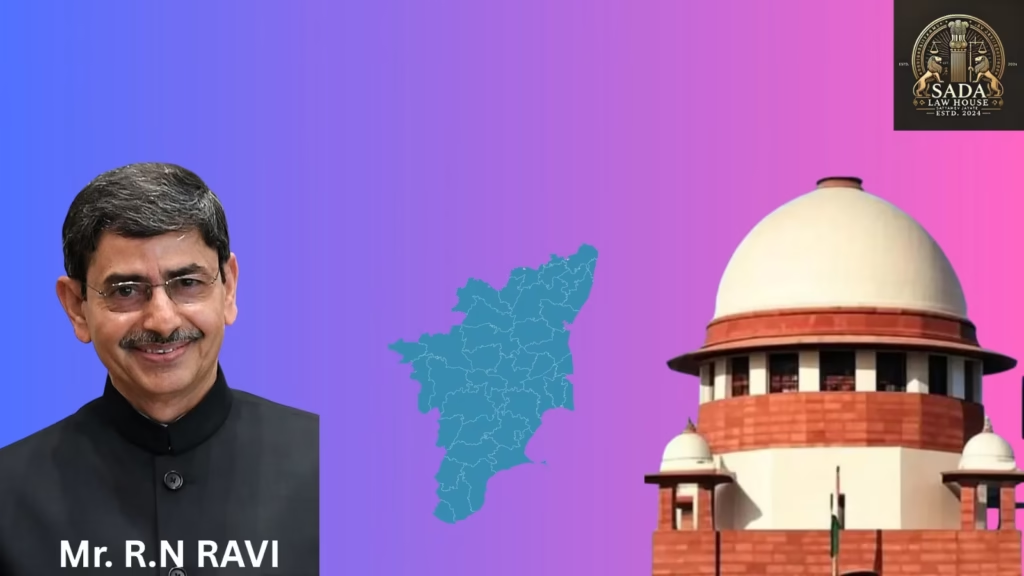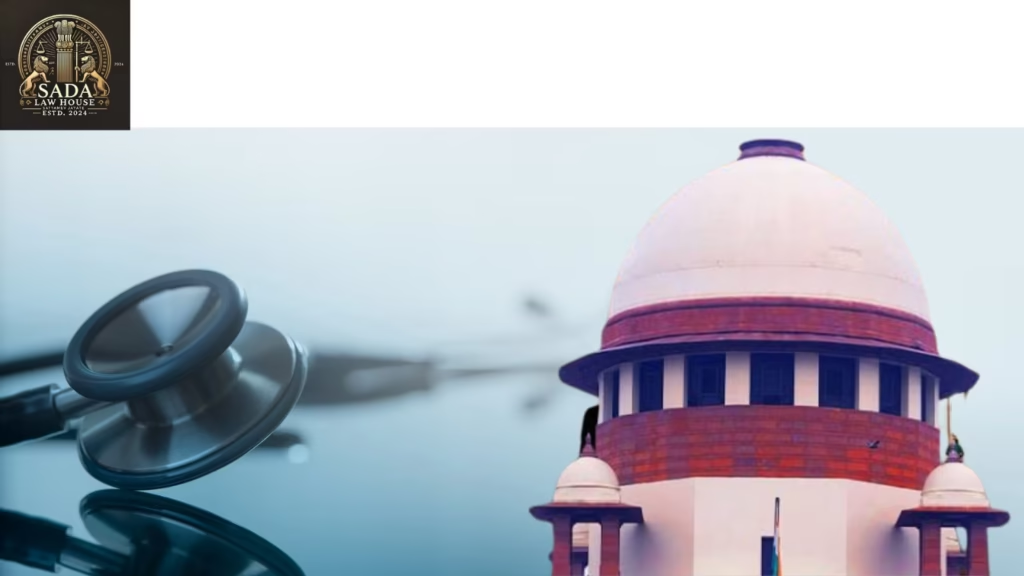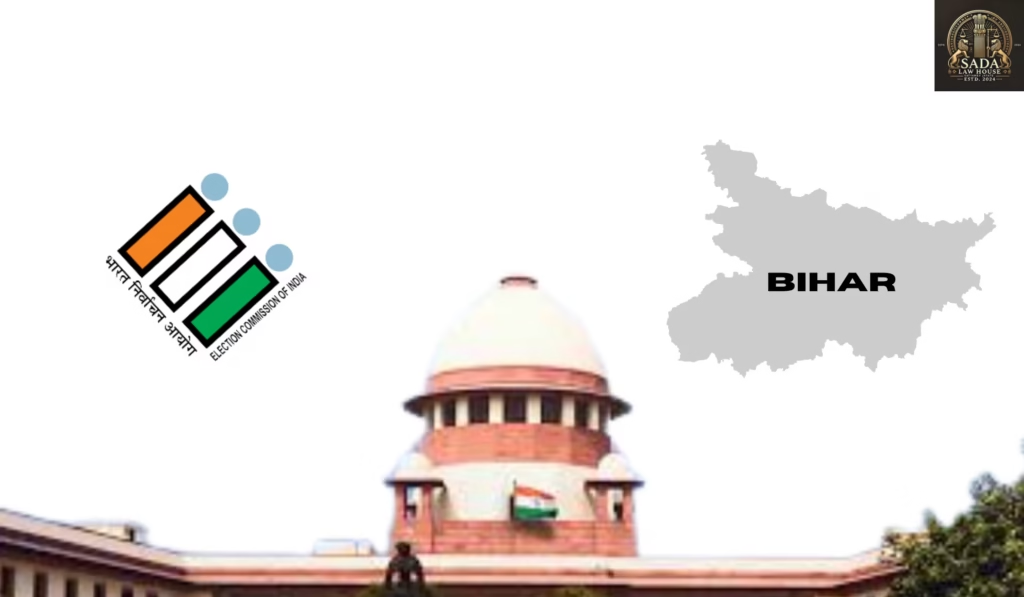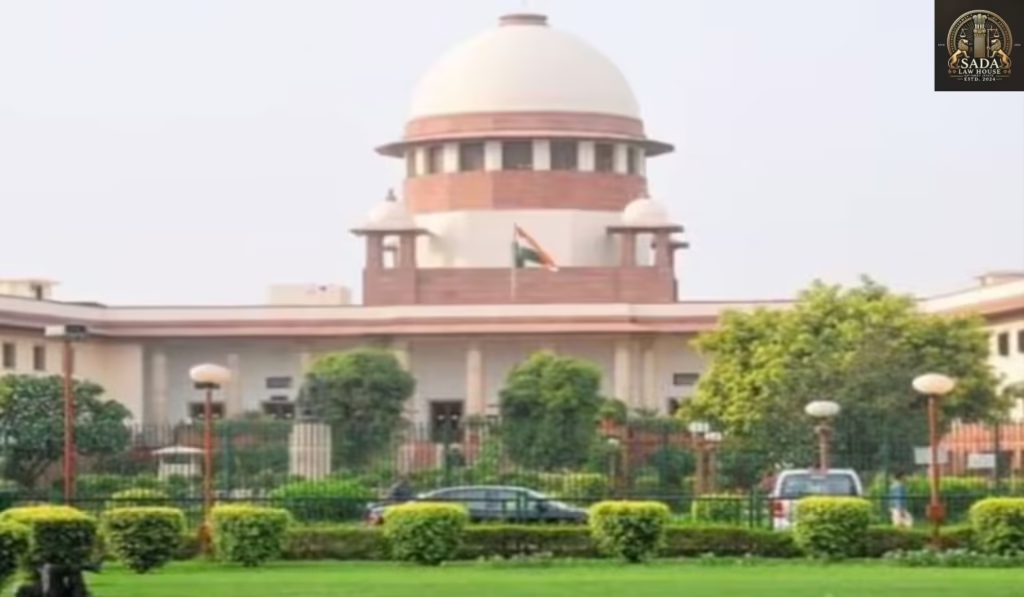Supreme Court Presses States on Governors’ Discretion: Federal Structure in Question
Trending Today Supreme Court Presses States on Governors’ Discretion: Federal Structure in Question Supreme Court Questions Centre on Algorithmic Policing and AI Bias: A Step Toward Digital Rights Reform LEGAL INTERNSHIP OPPORTUNITY AT BOBBLE AI INTERNSHIP OPPORTUNITY AT SETTLEMENTOFLOAN LEGAL JOB OPPORTUNITY AT BP, PUNE LEGAL INTERNSHIP OPPORTUNITY AT HYPERVERGE, BENGALURU LEGAL JOB OPPORTUNITY AT INSOLVENCY AND BANKRUPTCY BOARD OF INDIA Delhi High Court Orders Status Report on Legal Aid Shortage — Justice Must Not Be Costly Supreme Court Pulls Up Centre and States Over Faulty Public Health Infrastructure — A Wake-Up Call for Healthcare Accountability Supreme Court Seeks Update on National DNA Data Bank Compliance — A Turning Point for Forensic Justice Supreme Court Presses States on Governors’ Discretion: Federal Structure in Question Kashish Jahan 30 JULY 2025 The Supreme Court of India has issued firm deadlines to States for clarifying their stance on the discretionary powers of Governors under Articles 200 and 201. The case could reshape how India balances federal authority and constitutional accountability. Supreme Court Revisits Governor’s Discretion Under Articles 200–201 On 26 July 2025, the Supreme Court of India issued reminder notices to multiple States for failing to respond in a crucial constitutional case. At issue: whether Governors can indefinitely withhold assent to bills passed by State legislatures under Articles 200 and 201 of the Indian Constitution. A Bench led by Chief Justice Vivek Ghosh emphasized that unclear constitutional provisions should not be allowed to override democratic will. The Court is seeking to define limits on gubernatorial discretion. Delay in State Responses Hampers Constitutional Clarity Despite a Presidential reference accepted in June 2025, several key States, including Tamil Nadu and Karnataka, have yet to submit their legal viewpoints. The Court noted that their delay is obstructing much-needed clarity on whether inaction by a Governor can be considered a silent veto. Justice Ghosh Warns of Federal Breakdown Chief Justice Ghosh cautioned that indefinite gubernatorial inaction could erode the very foundation of Indian federalism. He remarked that Raj Bhavans must act as constitutional offices, not political extensions of the Union government. The Bench stressed the need for judicially enforceable limits on such discretion to preserve institutional integrity. Two-Week Deadline for States and Centre The Court has issued a firm two-week deadline for all relevant State governments to file their legal responses. The Central Government must also submit its affidavit within the same period. Once all submissions are complete, oral hearings will be scheduled. Implications for India’s Constitutional Balance Legal scholars suggest this case could set a landmark precedent on the role and responsibilities of Governors. A judicially defined framework for assent powers would help safeguard: The sovereignty of State legislatures The spirit of cooperative federalism The accountability of constitutional authorities This moment is being described as a test of constitutional coherence—with the potential to clarify a long-ambiguous area of Indian governance. Conclusion: Clarifying the Limits of Power With the balance of power between State legislatures and Governors at stake, the Supreme Court’s intervention may lead to stronger protections for India’s federal structure. By demanding timely responses and promising hearings, the judiciary is taking the first step toward constitutional clarity in a long-debated grey area. Leave a Reply Cancel Reply Logged in as Sadalaw. Edit your profile. Log out? Required fields are marked * Message* Live Cases Supreme Court Presses States on Governors’ Discretion: Federal Structure in Question Sadalaw • July 30, 2025 • Live cases • No Comments Supreme Court Questions Centre on Algorithmic Policing and AI Bias: A Step Toward Digital Rights Reform Sadalaw • July 30, 2025 • Live cases • No Comments Delhi High Court Orders Status Report on Legal Aid Shortage — Justice Must Not Be Costly Sadalaw • July 29, 2025 • Live cases • No Comments 1 2 3 … 5 Next »
Supreme Court Presses States on Governors’ Discretion: Federal Structure in Question Read More »










